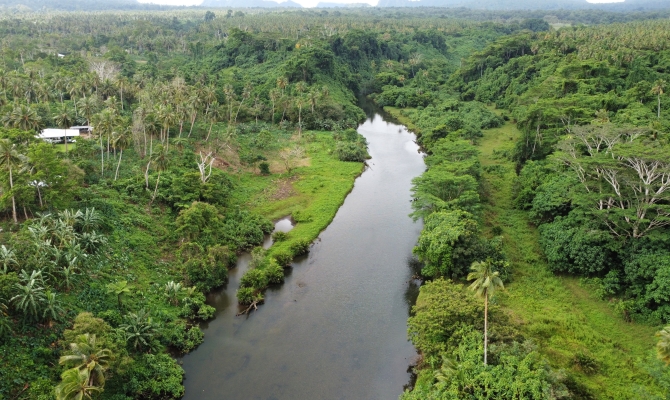
5 April 2024, Apia, Samoa – Pacific island countries continue to show global leadership in conserving the region’s unique biodiversity, with most of National Biodiversity Strategies and Action Plans (NBSAPs) already aligned with the recently adopted Global Biodiversity Framework.
A series of meetings recently concluded in Nadi, Fiji, that provided a valuable opportunity for collaboration and sharing of experiences to support the review and implementation of National Biodiversity Strategies and Action Plans (NBSAPs). The meetings examined Target 3 of the Global Biodiversity Framework, with participants taking a more in-depth look at the support which can be accessed through the Early Action Support Project for NBSAP Revision.
It was revealed that the Pacific is on track to achieve some of the key targets of the Global Biodiversity Framework, including Target 3, which aims to ensure that by 2030, at least 30 percent of terrestrial, inland water, and coastal and marine areas are effectively conserved and managed through systems of protected areas and other conservation measures. Many Pacific countries have already achieved this target well ahead of schedule.
Director General of the Secretariat of the Pacific Regional Environment Programme (SPREP), Mr Sefanaia Nawadra, in his closing remarks commended the participants from across the Pacific and across all sectors of environment, agriculture, and forestry who attended the week and a half-long programme.
“The high numbers of participants and the excellent turn-out we’ve had throughout these series of workshops and meetings is evidence that this process is of critical importance to Pacific island countries and for the future management of global biodiversity,” Mr Nawadra said.
“We’ve heard about our major challenges, but we’ve also heard about our Pacific strengths, innovations, and ways that the Global Biodiversity Framework priorities are already present and reflected in national and regional policies and policy instruments, existing information and monitoring tools, and national and regional ways of working including with communities,” he added.
Close to a hundred delegates attended the meetings.
Countries were also provided with the opportunity to present their needs and expectations of the Convention on Biological Diversity to the (?) CBD Secretariat around the review and revision of NBSAPs, including the requirement for national targets to be submitted before the 16th meeting of the Conference of the Parties, which will be held in Colombia at the end of this year.
National representatives expressed the view that while there is a plethora of different tools, resources, and online platforms that are available to support them in this endeavour as presented by the United Nations Environment Programme Early Action Support Project, it is often overwhelming and overburdening. Partner agencies in attendance were reminded and encouraged to use and support existing regional mechanisms to ensure that tools are aligned and embedded within existing regional tools and approaches to avoid this issue.
“The urgency to improve management of our rich island and marine biodiversity and the ecosystems that support them cannot be understated as the pressures continually increase,” Mr Nawadra said.
“We must act now, and we must ensure that we have access to support and resources needed to do so.”
The Pacific Regional Dialogue on NBSAPs, Target 3, and the UNEP Early Action Support Project was jointly hosted by the CBD Secretariat, SPREP, and the UN, along with the Government of Fiji.
Other representatives who also attended included Pacific Islands Roundtable for Nature Conservation partners, Council of Regional Organisations in the Pacific agencies, non-governmental organisations, youth, women, and UN partners.
For more information, please contact Ms Amanda Wheatley, SPREP Biodiversity Adviser, at amandaw@sprep.org.